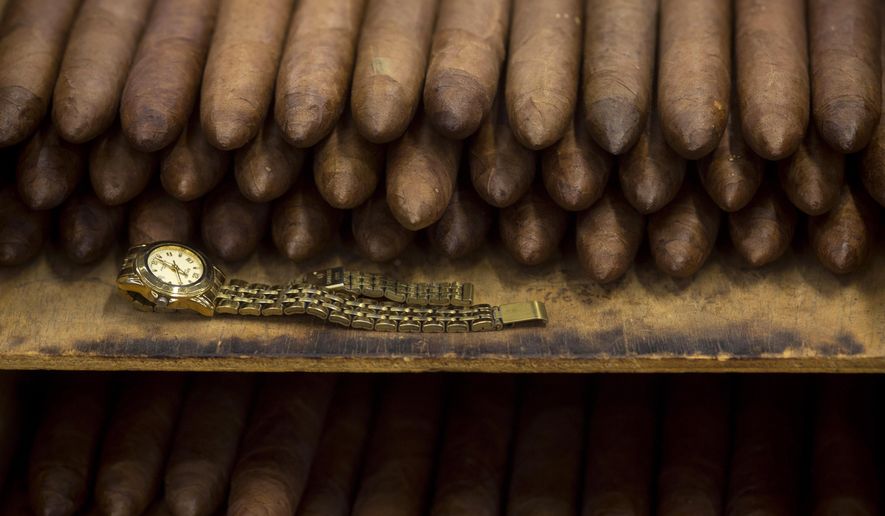ANALYSIS/OPINION:
Julius Caeser Newman was 13 years old in 1888 when he sailed from Austria-Hungary to Baltimore in pursuit of the American dream. With vision, hope and a $50 loan, he built a hand-rolled cigar business that survived the Panic of 1893, the Great Depression, two world wars, the Cuban trade embargo and import competition from lower-cost countries.
Today his company, now the oldest family-owned premium cigar maker in America, faces the biggest threat of its existence: a regulatory onslaught by the Food and Drug Administration.
It would be shameful if Congress fails to defend J.C. Newman’s legacy and all the other small businesses that comprise the “premium cigar” industry. After all, the root of their problem is lawmakers’ foolish delegation of overly broad powers to the FDA.
Back in 2009, under the Tobacco Control Act, Congress specifically empowered the agency to regulate cigarettes, cigarette tobacco and smokeless tobacco. But lawmakers also authorized the FDA to regulate other tobacco products that regulators “deem” to be subject to the law. No, surprise, the agency on May 10 wielded those powers to impose the same regulatory regime on premium cigars that applies to cigarettes, despite vast differences in ingredients, usage and risk between the products.
Among the most onerous provisions is the requirement that premium cigar makers seek government approval to sell any and all products introduced after February 2007. They must prove that each cigar is “substantially equivalent” to one sold before the completely arbitrary “predicate” date, or sales must cease. Furthermore, any product introduced after Aug. 8, 2016, must undergo extensive testing before the company can even apply for government permission to sell it — a process that may take three years or more for each new cigar.
The premium cigar market is populated by limited-edition products and seasonal blends, and most of the small businesses that produce them don’t have the $1 million or more that the FDA estimates it will cost to comply with the regulations. At the same time, the agency concedes that the benefits of the new rules “are difficult to quantify” and it “cannot predict the size of these benefits.”
What is particularly nonsensical is that these artisan products are not the target of the FDA’s latest regulatory crackdown, which is actually aimed at combating teen smoking and the popularization of e-cigarettes (despite the fact that subjecting e-cigarettes to the new regulations will hurt public health far more than protect it).
Indeed, hand-rolled premium cigars are not mass-produced and sold in convenience stores, nor do they contain the flavor additives that attract young smokers these days. They also aren’t meant to be inhaled. According to industry representatives, the market share of premium cigars is a mere 2 percent of all cigars sold each year in the United States. The typical consumer — an adult male — smokes only two premium cigars a week.
Even the FDA concedes that people who smoke cigars exclusively have a lower risk for many smoking-related diseases compared with cigarette smokers, as documented in the 2014 Surgeon General’s Report.
The FDA did consider excluding premium cigars in its proposed regulation. But that option was dropped in the final rule — reportedly at the behest of cigarette manufacturers that would rather the government squelch competition.
One need not like cigars or even approve of tobacco use to recognize that the new regulations are misguided and excessive. That’s all too common now that America is transforming from a land of liberty into an administrative state. Were Julius Caeser Newton to land here today, he never could have built his business. Legislation is pending to exempt premium cigar makers from the FDA’s latest power grab. There is no excuse for Congress not to approve it.
• Co-author of “Red Tape Rising 2016,” Diane Katz is the senior research fellow in regulatory policy at The Heritage Foundation’s Roe Institute of Economic Policy Studies.




Please read our comment policy before commenting.